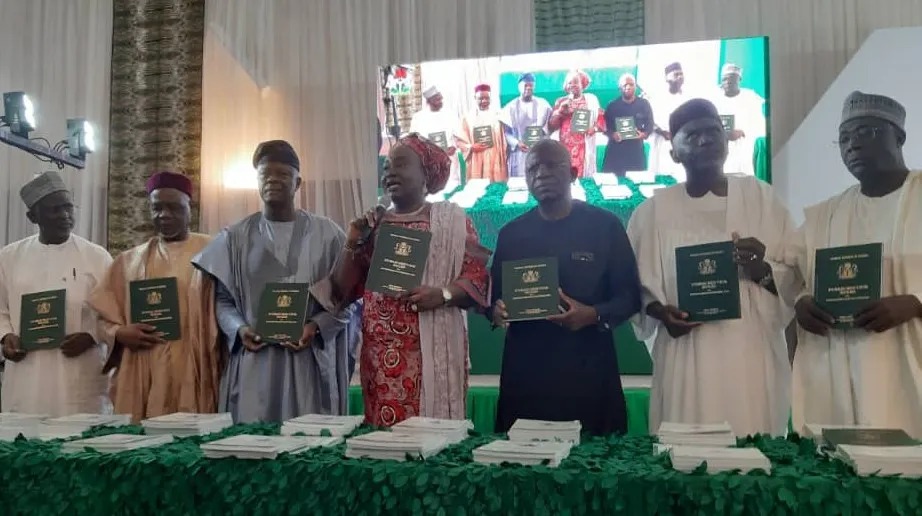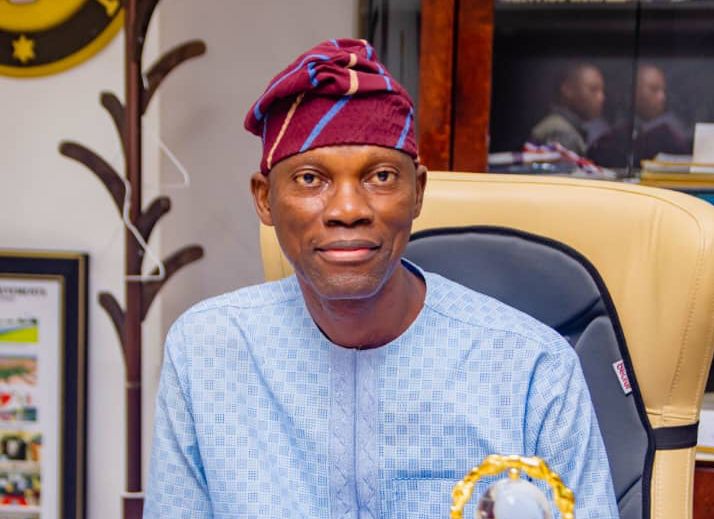President Bola Tinubu
BY WALE AJAYI
If teaching in a local primary school is as lucrative and possibly more work-life balance than working in the bank, the refinery, or on the oil rig where risks are higher, I doubt if people would be driven towards the latter. It defies logic to explain why an officer on a particular level in a certain government parastatal or agency of government should earn far more than a fellow on the same level in another.
How do we solve the corruption problem when there’s a serious and dangerous lopsidedness in government remuneration and benefits? Yes, there can be slight justifiable allowances to compensate for differences in job risks, professionalism, and cost of living between locations. Nevertheless, there shouldn’t be a significant difference in wages and salaries between MDAs. Otherwise, everyone will continue to lobby to work in MDAs perceived to be more rewarding. I have enquired about this dichotomy and I was shocked to hear that the agencies that are well-renumerated are professionals who actually work and must report to work but those that are not well-renumerated are the opposite.
This analogy surprised me because I wondered if there’s any aspect of our lives that we don’t require professionalism or any MDAs that do not require to be professionally managed. Is it Police, Road Safety, Customs, Immigration, Population Commission, Research institutes, or INEC? Some also further argue that certain agencies are irrelevant without specific duties and KPIs. Going forward, we need to prune and merge agencies with duplicated functions to reduce the cost of governance and increase efficiency.
Advertisement
It’s basic economics that scarce commodities attract high values. Employment racketeering and nepotism occur because of a scarcity of jobs, lopsidedness in remuneration, and a lack of other opportunities in SMEs, sports, innovations, and other private enterprises due to a lack of affordable credits. The democratisation of socioeconomic opportunities is imperative now more than ever. Consequently, employment racketeering needs to stop. Many ordinary Nigerians believed previous administrations failed in this regard so profoundly. They believed government job opportunities elude them because they are not members of political parties or have significant political affiliations where job slots may get to them.
Many do not feel connected and their hopes are bleak to the extent that they often disregard job advertisements and regard them as mere formalities. To them, the jobs have been shared among political allies and associates close to power quarters. Even though there is strong disaffection among some political party members who believed the more rewarding job slots in high-paying MDAs are reserved for the children of influential people while the children of the poor only get the crumbs.
This new administration must put an end to this and ensure citizens are able to participate fairly and equally in the socioeconomic opportunities the government offer. Granted that government cannot and ideally shouldn’t employ everybody but create an enabling environment for enterprise to grow and thrive and a level playing ground that regularly regulates and monitors the economic indices and make the necessary review to maintain socioeconomic balances between the social class and earning capacity in the economy. In addition to this, the new administration must embrace policies that offer diverse socioeconomic opportunities, especially for the youth.
Advertisement
The decentralisation of economic activities is key to fast-tracking development. A new national income sharing between the three tiers of government should be such that devolves power from the central. A new economic sharing model that allows the local government to play a critical role in economic development should be instituted. For instance, we can have a 30/40/30 revenue-sharing arrangement between federal, state, and local governments. Interstate bilateral commission and regional development system where states and regions collaborate on critical developmental projects like transportation infrastructure – rail, seaport, major highways, airport, industrial hubs, research and development should freely thrive as may be necessary.
The government should consider the further institution of true federalism and devolution of powers by;
- Expansion of justice systems by establishing regional supreme courts where disputes are expeditiously settled and will be final on certain matters like land, trade, probate, state elections, etc.
- Removal of more items from the exclusive list: Power and energy sector liberalisation should be completed with the privatisation of the Transmission Company of Nigeria (TCN) and the terms of privatization of GenCos and DisCos be reviewed. State and community policing have the potential to significantly improve internal security. States can inherit current police structures and modify them to reflect the peculiarities of their needs. Taking Lagos for example, the societal structure and economic dynamics in Apapa are different from that of Victoria Island and as such the nature of crimes differ. By the same measure, the nature of policing and crime detection and prevention strategy should differ. In like manner, the type of policing system required in Kaduna is different from that in Warri. To complement state police and collaborate on national security, a new federal policing structure that would focus on intelligence (internal and external), counter-insurgency, counter-terrorism, economic sabotage, organised crime, and cyber-crimes be established as part of national security architecture.
- Incentivising frontier investment in the real sector — power, infrastructure, manufacturing, agro-processing, processing, etc.
- Concessioning of significant economic assets — airports, refineries, debottlenecking of Ajaokuta steel plant and ensure profitable take-off by a consortium of private sector and possibly foreign interest with demonstrable capabilities to effectively turn around the investment and domesticate the majority of the entire value chain.
Development is capital intensive and as such may be difficult without the required investment. Revenue improvement is central to development funding and credit rating improvement to drive foreign direct investment and genuine creditors. The new administration must immediately be embarked on:
- Tax administration reengineering: The current average tax-to-GDP of 5.5% is one of the lowest rates in Africa and the world and is largely unreflective of the size of the economy. Moving from current indices to a much-desired annual average of 25% in the first two years will require a drastic revolutionary approach to the tax management system. As Sir Paul Collier would put it: “One way out of it, which a number of societies have done, and of course it is possible to get out of it. One way is to break the social networks. And the way to do that is to start again. This was very common in tax authorities, where the tax authority was effectively closed, and a new one created. What’s really, really hard, is to reform incrementally a big dysfunctional organisation with a dangerously anti-development mindset, norms, narratives, and identity”. Ultimately, it appears that outsourcing federal taxation is inevitable. It will be difficult to achieve landmark turnaround improvement in tax administration at the federal level with the current arrangement. The Lagos example needs to be replicated at the federal level. FIRS need to be reorganised as a clearing house and regulator for private tax administration agencies (TAA) which shall be independent and private like PFAs in the pension administration. TAA shall be contracted for a certain period renewable and have the mandate to collect tax on behalf of the government and pursue rigorous tax revolution to shore up government revenue. This agency shall charge a reasonably agreed percentage reasonable enough to pay their staff competitive wages, salary, and other benefits to motivate them with legal consequences against sharp practices, collusion, or breach of trust. FIRS staff should be redistributed to other MDAs and only a few retained after needs assessment by any of the top auditing firms – Deloitte, PwC, KPMG, EY and other credible ones. These new retrained and retained staff will be mixed with new recruits with new orientations, norms, narratives, and identities.
- The announcement on inauguration day reiterating the removal of petroleum subsidy which currently claims a significant part of our revenue sits well with the new order of fiscal policy reforms.
- Floating and unifying the forex rates at the prevailing market rate and liberalising the banking activities.
- Fight crude oil theft frontally by collaborating with local actors and stakeholders. It is also important to pursue crude oil theft in the countries and ports where they are received.
- Systematisation of revenue agencies and prevent leakages and sabotage.
- It’s high time we maximized our solid minerals sector through policy review to allow genuine investors both local and foreign. We need to stop illegal mining by all legal means. However, mineral exploration licenses must go with the condition to domesticate the significant part, if not all, of the entire value-adding chain.
- National reorientation for the public and civil service to buy into the new order administration policy and programmes to drive unprecedented economic growth and fast-track sustainable development.
- Effectively increase the tax net by vigorously pursuing tax evaders, and sharp practices like under-declaration in corporate accounting, as well as prosecuting and fining. This effort should also include extending the tax net by effectively including the entertainment and informal sectors, increasing taxes on luxury goods — alcohol, cigarette, hotels, high-end cars, land use charges in the city centres, and rich neighbourhoods. Corporate taxes, rents and royalties on high-return economic sectors like mineral extraction and processing, oil and gas should be renegotiated to reflect the realities of the moment.
Topmost among our current challenges are security, corruption, and infrastructural deficit without which development will be difficult.
Advertisement
Ajayi, an engineer, management strategist, and development advocate writes from Mushin, Lagos.
Views expressed by contributors are strictly personal and not of TheCable.
Add a comment






